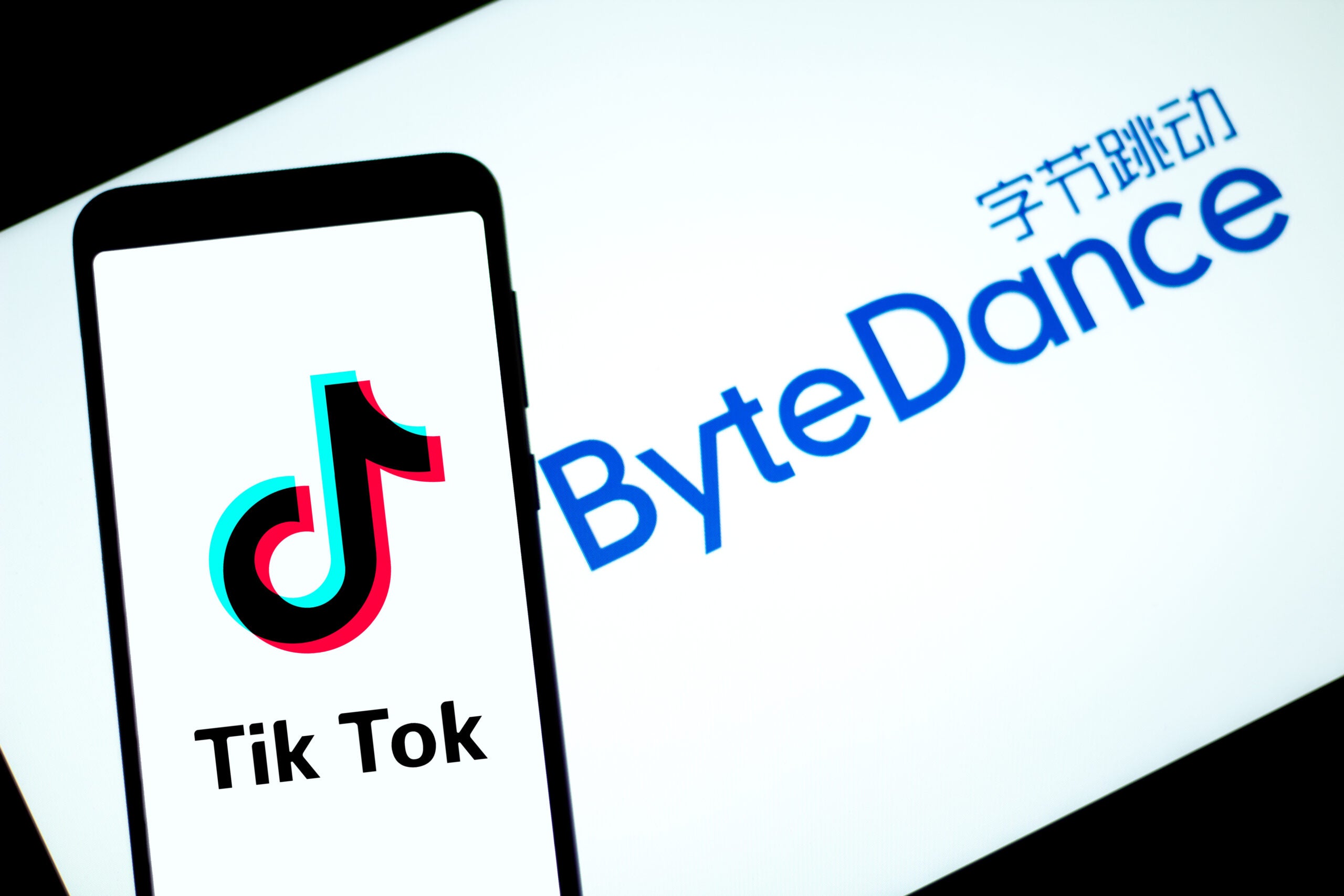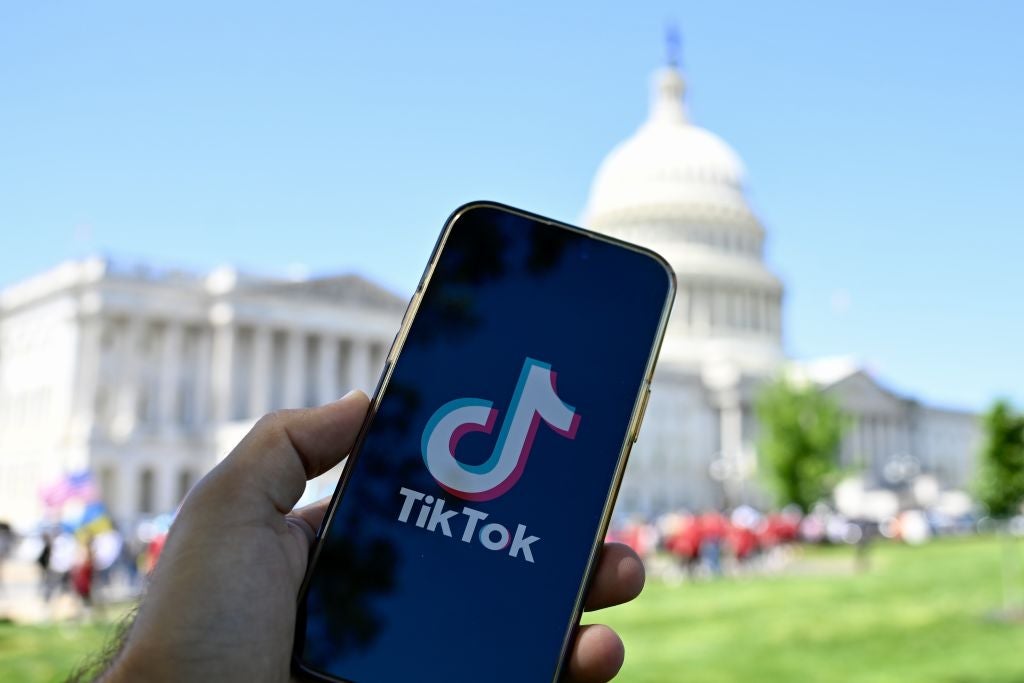
ByteDance – the huge Chinese parent company behind social media phenomenon TikTok – has said that it will rearrange itself into six separate business units. Current CFO, Chew Shou Zi, will relinquish his position to focus on the company’s overseas services in a move that will further separate TikTok from its Chinese counterpart.
In a memo released to Chinese media on Tuesday, CEO Liang Rubo, announced that ByteDance would split into six business units, focusing on the following areas: domestic media, vocational training, enterprise solutions, work collaboration technology, gaming and overseas services.
Liang will oversee ByteDance’s finances allowing CFO Chew Shou Zi to focus on his role as chief executive of TikTok – the international unit of the business. The move further underlines the international division as a separate entity from its Chinese operations.
This will be the biggest organisational change for ByteDance since co-founder Zhang Yiming said in May that he would step down as CEO. On Wednesday, it was reported that he would also step down as Chairman. It is unclear whether he will keep his majority voting rights.
As the world’s only hectacorn – a private company valued at more than US$100bn – ByteDance said in April that it was looking at Hong Kong and New York for an initial public offering (IPO). Yet, it was reported last month that any plans to take the company public were suspended until at least late 2022. ByteDance is currently ranked number one company worldwide on GlobalData’s social media thematic scorecard.
The reshuffle comes at a time of intensified scrutiny by the Chinese government of internet companies, both domestically and abroad. China has recently introduced a slew of regulatory changes that have made it difficult for ByteDance to raise capital. Its core business involves social media, education and gaming, three areas that have been at the centre of Beijing’s crackdown.
How well do you really know your competitors?
Access the most comprehensive Company Profiles on the market, powered by GlobalData. Save hours of research. Gain competitive edge.

Thank you!
Your download email will arrive shortly
Not ready to buy yet? Download a free sample
We are confident about the unique quality of our Company Profiles. However, we want you to make the most beneficial decision for your business, so we offer a free sample that you can download by submitting the below form
By GlobalDataIn July, the Cyberspace Administration of China (CAC) stipulated that any company with consumer data of over 1 million users wishing to raise funds abroad must first obtain approval from the internet watchdog.
“In the past few years, the company has experienced rapid development. The company has always optimised and upgraded its structure to meet business needs,” Liang said in his memo explaining the move. “The company’s business lines are growing and maturing and need flexibility to address their own unique challenges.”
The overhaul will lead to the establishment of the following six divisions:
Douyin, China’s version of TikTok, will become the umbrella unit responsible for the company’s domestic social media apps. These include the Jinri Toutiao news aggregator, the Xigua video sharing platform and internet search engines and encyclopaedia apps.
ByteDance will also add a vocational education unit under the Dali Education platform. This section will be responsible for technology-powered learning, continuing education, smart hardware and on-campus collaboration.
Lark, known in Chinese as Feishu, will focus on building enterprise collaboration and management services. This unit will be in charge of developing office communication technology, such as video conferencing software.
BytePlus will spearhead the enterprise solutions unit, focusing on business-level technical services such as cloud computing.
The company’s gaming unit will be known as Nuverse, which will be in charge of game development and distribution with the aim of building a network between gamers and developers.
The final unit will be TikTok, which will oversee all overseas expansions. This unit will also support the company’s endeavours to branch into areas such as global ecommerce.
The delineation of TikTok as a separate unit comes a mere week after the platform, along with other social media companies, was grilled by US lawmakers during a Congressional hearing.
Questions concerning TikTok’s ties to the Chinese government were once again brought up during the hearing. Michael Beckerman, the company’s head of public policy for the Americas, insisted that TikTok “[does] not share information with the Chinese government,” adding that TikTok has “no affiliation” with Beijing ByteDance Technology. He also reiterated that TikTok’s US user data is stored in the United States with backups in Singapore.
No more working 9 to 9
Several ByteDance also recently said on Chinese social media that it would implement a 10-7-5 work scheme, meaning that employees will be expected to work from 10 am to 7 pm five days per week. For any work done after 7 pm, an application must be submitted, and overtime pay will apply. The company also said that overtime pay on holidays would be doubled.
The announcement opposes the 9-9-6 work culture – a practice where employees are expected to work from 9 am to 9 pm six days a week – which was prevalent in the Chinese tech scene until recently.
In September, China’s top court ruled that this practice was illegal, saying that companies bear the responsibility to prevent people from overworking.
In a statement, the court said that “legally, workers have the right to corresponding compensation and rest times or holidays. Complying with national working hours is the obligation of employers.” It added that “further guidelines will be developed to resolve future labour disputes.”
According to Chinese labour law, a standard workday is eight hours with a maximum of 44 hours per week. Any additional work requires overtime pay. However, this law is poorly enforced, specifically among the country’s big tech companies, where employees are often expected to work far longer hours, often without any extra compensation.





